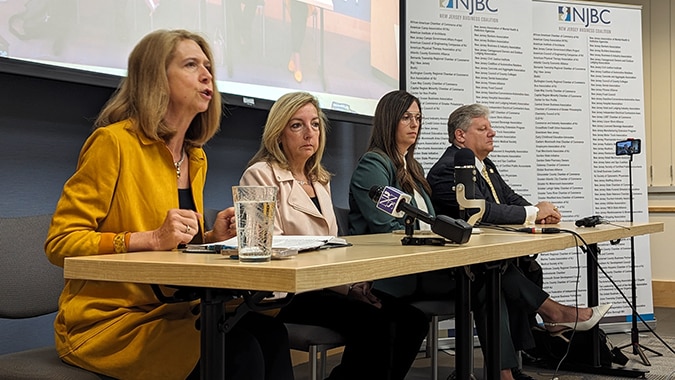Women are less likely than men to feel that both genders are treated equally in the workplace, according to the fourth annual New Jersey State of Diversity Survey, commissioned by Taft Communications and the New Jersey Business & Industry Association (NJBIA). While the responses to certain questions showed progress in the workplace, 30% of women said that women have fewer opportunities than men.
“Our fourth consecutive NJ State of Diversity Survey makes clear that the perceptions of men and women differ on important measures of equality,” said Taft President Ted Deutsch. “Our polling aims to raise awareness about a number of these sensitive trends so that employers and employees can work together to keep striving toward less bias and more equality.”
Taft has polled New Jerseyans since 2016 to gain insights into the day-to-day reality of diversity in the state and to probe public attitudes about it. The latest poll, developed in conjunction with NJBIA, and conducted by the Fairleigh Dickinson University Poll, was in the field from May 29 to June 4, and is based on the responses of 541 randomly selected working adults in New Jersey.
“It’s a positive that a majority of men and women believe both genders have the same opportunities to succeed,” said NJBIA President and CEO Michele N. Siekerka, Esq. “But any negative perceptions about opportunity in the workplace can have an adverse impact on a worker’s belief that they can truly succeed. It’s important for employers to understand these perceptions and establish the necessary realities to address them.”
“As always, we are proud to partner with Taft Communications and the NJBIA to examine these important issues,” said Krista Jenkins, director of the Fairleigh Dickinson University Poll and Professor of Political Science. “Questions such as these shed light on how egalitarian the workplace is becoming, or is not, in the #MeToo era.”
Several questions in the 2019 poll probed opinions about opportunities in the workplace for men and women.
In your opinion, do you think that women have more, fewer or the same opportunities to advance as men in your organization?
- 30% of women said that women have fewer opportunities than men, compared to 13% of men who gave the opinion that women have fewer opportunities.
- 21% of men said that women have more opportunities than men, compared to 13% of women who gave the opinion that women have more opportunities.
The question also produced disparities by age, with younger respondents less likely to see barriers for women.
- 24% of male and female workers 55 and over, and 24% of those aged 35-54, said women have fewer opportunities than men, compared to only 15% of workers age 18-34 who expressed that opinion.
Are mothers treated the same, better, or worse than everyone else in your workplace?
- Men were twice as likely as women to say mothers are treated better than everyone else: 18% to 9%.
Are fathers treated the same, better, or worse than everyone else in your workplace?
- Males (7%) and females (7%) were equally likely to say fathers are treated better.
A series of questions asked since 2017 explored the prevalence of offensive comments directed toward various groups, including women.
Please tell me how often, if at all, you hear things that could be offensive to women.
- 70% of those surveyed said “never” in 2019, up from 66% in 2017.
- Those who said such comments are heard “very often” was 5% in 2017 and remained at that level in 2019.
Full 2019 poll results are available here. You can also view the results of the 2018 State of Diversity Survey, as well as the 2017 and 2016 poll results.
Methodology
This Fairleigh Dickinson University PublicMind survey was conducted by landline and cellular telephone May 29 to June 4, 2019, among a random statewide sample of 541 employed residents. Results have a margin of sampling error of +/- 4.8 points, including the design effect.
